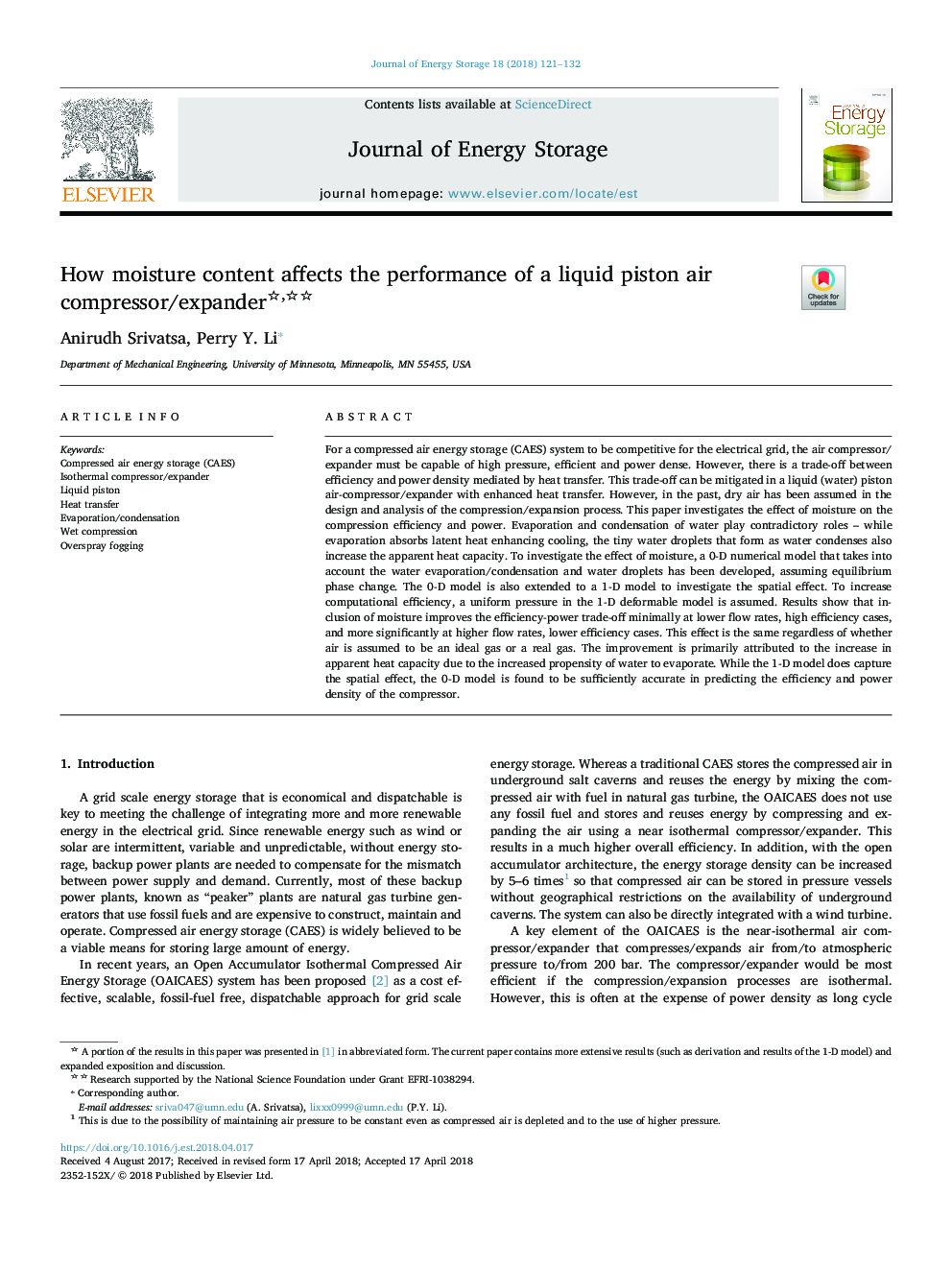| کد مقاله | کد نشریه | سال انتشار | مقاله انگلیسی | نسخه تمام متن |
|---|---|---|---|---|
| 7539727 | 1489002 | 2018 | 12 صفحه PDF | دانلود رایگان |
عنوان انگلیسی مقاله ISI
How moisture content affects the performance of a liquid piston air compressor/expander
ترجمه فارسی عنوان
چگونه رطوبت بر عملکرد یک کمپرسور / پیستون هوا پیستون مایع تاثیر می گذارد
دانلود مقاله + سفارش ترجمه
دانلود مقاله ISI انگلیسی
رایگان برای ایرانیان
کلمات کلیدی
موضوعات مرتبط
مهندسی و علوم پایه
مهندسی انرژی
انرژی (عمومی)
چکیده انگلیسی
For a compressed air energy storage (CAES) system to be competitive for the electrical grid, the air compressor/expander must be capable of high pressure, efficient and power dense. However, there is a trade-off between efficiency and power density mediated by heat transfer. This trade-off can be mitigated in a liquid (water) piston air-compressor/expander with enhanced heat transfer. However, in the past, dry air has been assumed in the design and analysis of the compression/expansion process. This paper investigates the effect of moisture on the compression efficiency and power. Evaporation and condensation of water play contradictory roles - while evaporation absorbs latent heat enhancing cooling, the tiny water droplets that form as water condenses also increase the apparent heat capacity. To investigate the effect of moisture, a 0-D numerical model that takes into account the water evaporation/condensation and water droplets has been developed, assuming equilibrium phase change. The 0-D model is also extended to a 1-D model to investigate the spatial effect. To increase computational efficiency, a uniform pressure in the 1-D deformable model is assumed. Results show that inclusion of moisture improves the efficiency-power trade-off minimally at lower flow rates, high efficiency cases, and more significantly at higher flow rates, lower efficiency cases. This effect is the same regardless of whether air is assumed to be an ideal gas or a real gas. The improvement is primarily attributed to the increase in apparent heat capacity due to the increased propensity of water to evaporate. While the 1-D model does capture the spatial effect, the 0-D model is found to be sufficiently accurate in predicting the efficiency and power density of the compressor.
ناشر
Database: Elsevier - ScienceDirect (ساینس دایرکت)
Journal: Journal of Energy Storage - Volume 18, August 2018, Pages 121-132
Journal: Journal of Energy Storage - Volume 18, August 2018, Pages 121-132
نویسندگان
Anirudh Srivatsa, Perry Y. Li,
